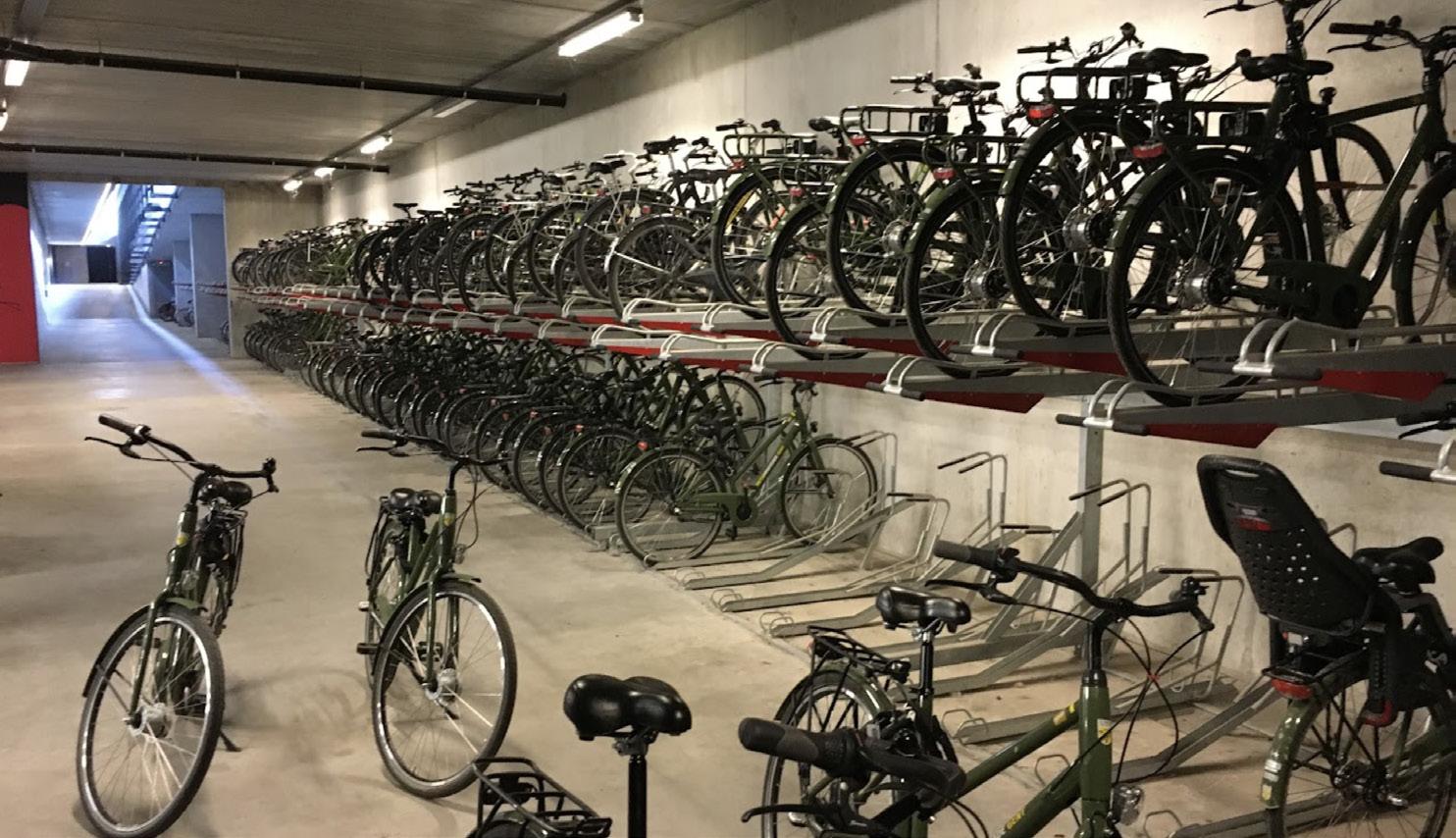
1 minute read
38 Provide diverse bike share hubs
Once again, Ghent leads the way –with council-run bike share and hire hubs offering a huge range of different types of bikes to both residents and visitors. At these hubs you can rent everything from a simple ‘sit up and beg’ city bike, to a child carrying tricycle, to a full-on electric cargo bike. Their introduction to York would allow residents and visitors alike to experience our city in new ways. Visitors can use standard bikes for everyday mobility, or to discover parts of the city hitherto unexplored. With hubs at the station, or at park and ride sites on key cycle corridors, families could enjoy York in a fun and novel way without being shackled to their cars. For residents, a child-carrying trike could be hired to experiment with car-free living prior to an expensive purchase.
39 Create new standards for new developments
York is high-value for property developers so it means that we can ask a lot of them. There are two dimensions to this. First, it’s well past time for a total ban on any new car parking (with the exception of disabled spaces) as part of any new development within 1 mile of the city centre. With excellent public transport access and plentiful amenities within walking and cycling distance, there is absolutely no need to own a car. To complement this, it is essential that developers throughout the whole of York are made to install the highest-quality cycle parking and routes. At present, new developments often make cycling actively worse than it was before. We must enforce the requirement that every developer put cycling at the forefront of their projects in line with the Transport Hierarchy. In many ways, this would be a bonus for them, as space previously wasted on parking can be used to build more accommodation, and, more generally, cities with excellent cycling become more desirable places to live which increases the value of new developments.
Alternatively, e-cargo and family bikes could be offered, as with car share, for intermittent or occasional trips, such as transporting bulky purchases, visiting the city dump, or special family outings. Such specialist bikes will plug the gap currently filled by the car – which for many is simply an expensive and depreciating convenience standing idle for 96% of its service life. And for dedicated resident pedestrians, the same applies to bikes, so the ability to access a bike without the hassle of ownership will be a huge boon. In the future, cycle hubs should provide a versatile, accessible and inexpensive form of enhanced mobility for those who choose to live car-lite or the third of the population who don’t have access to a car at all.







